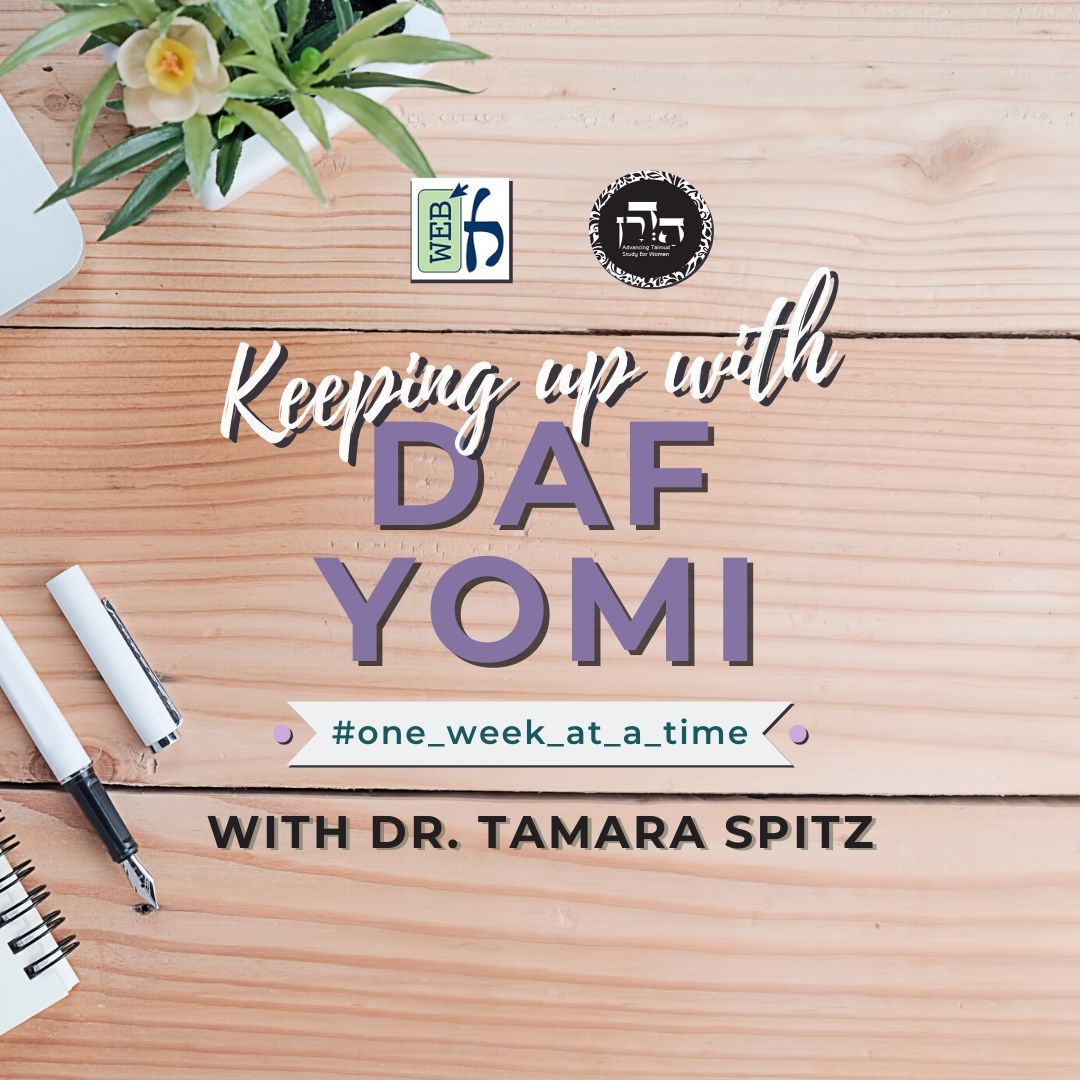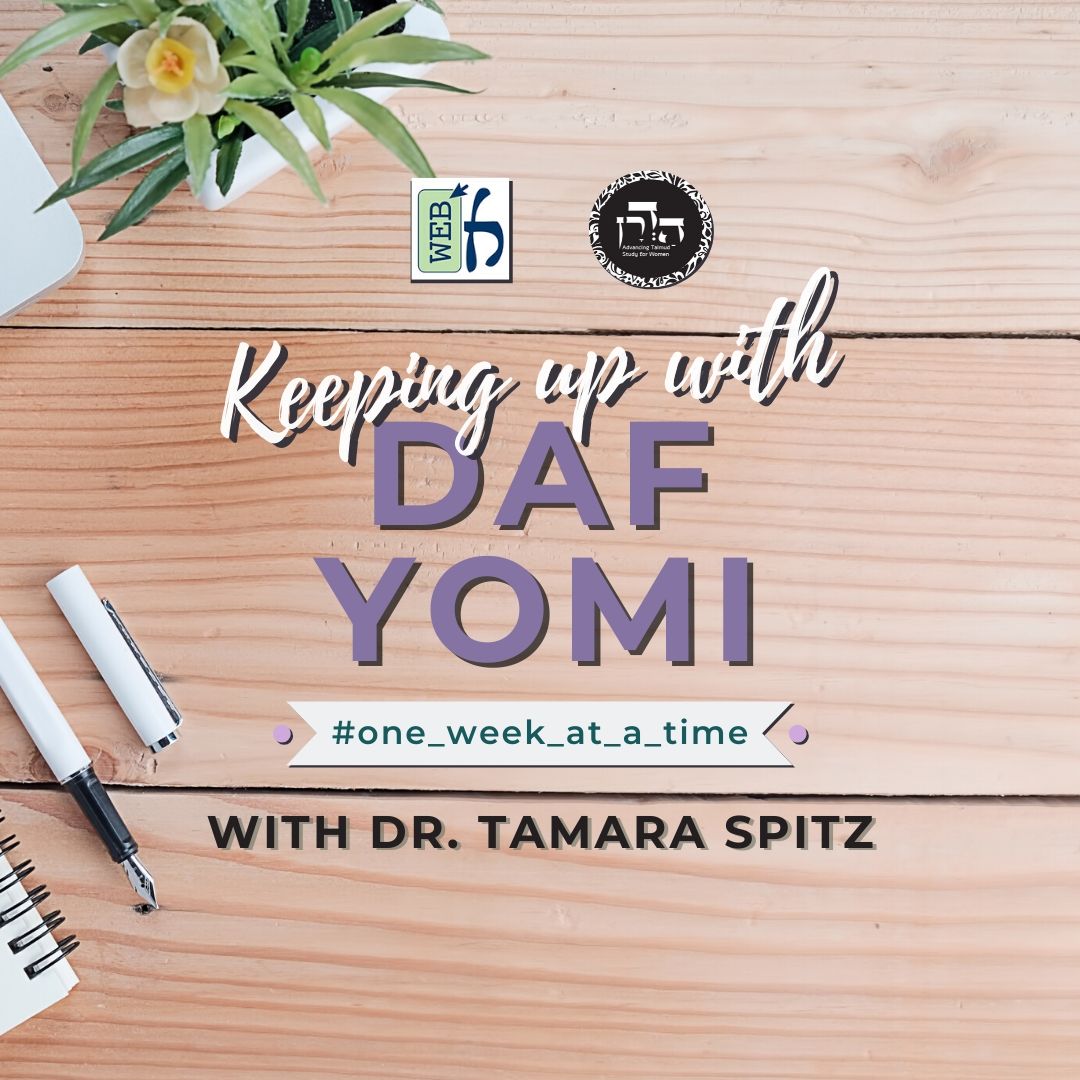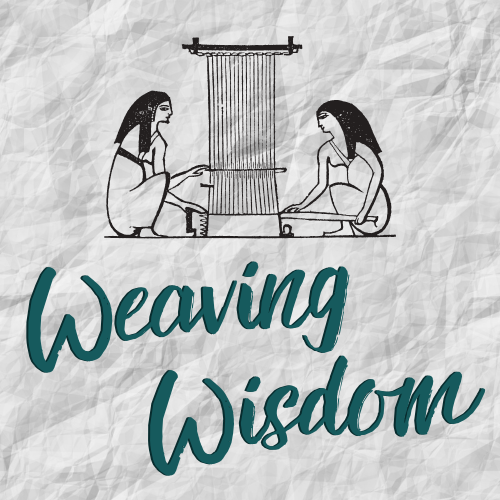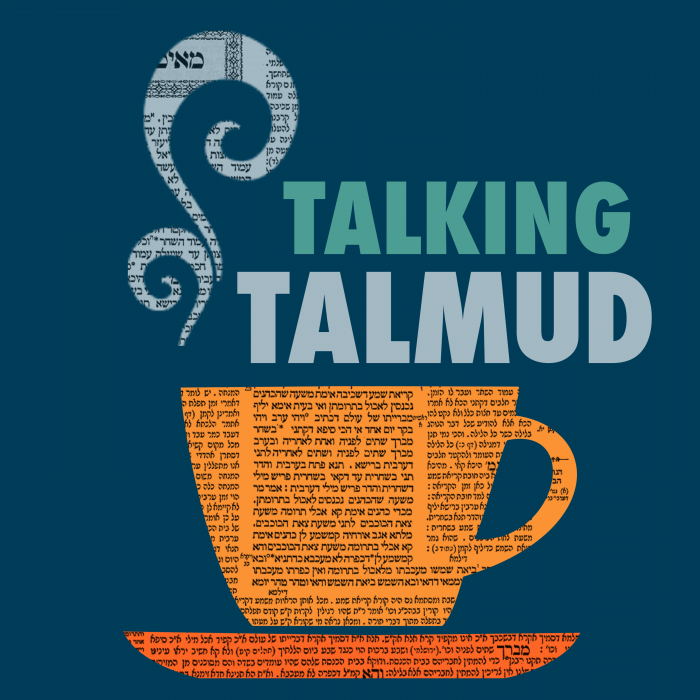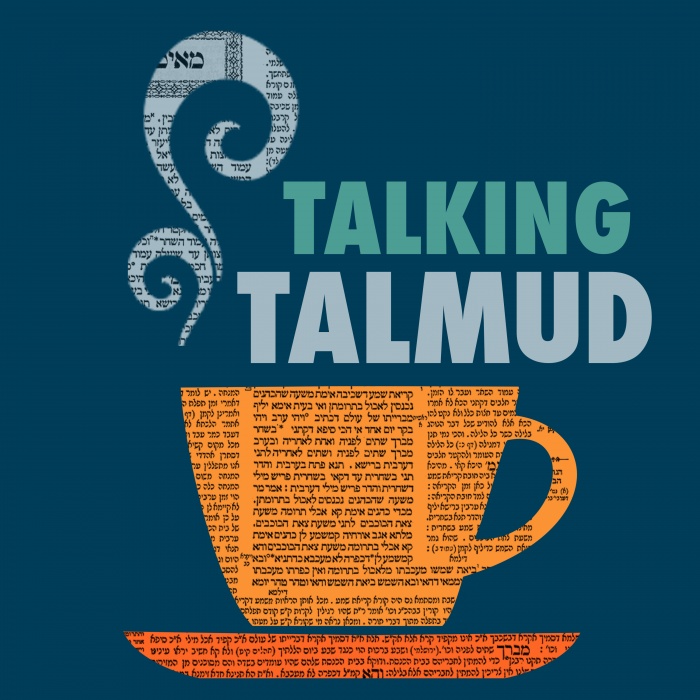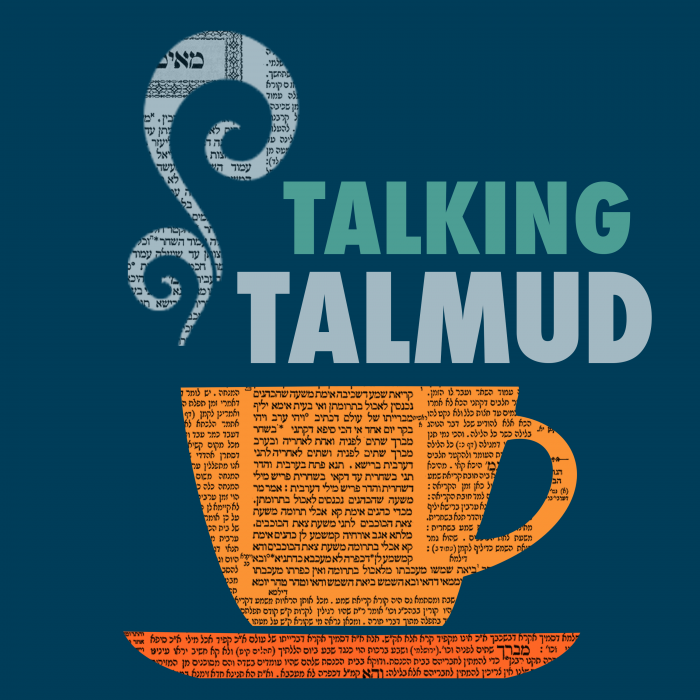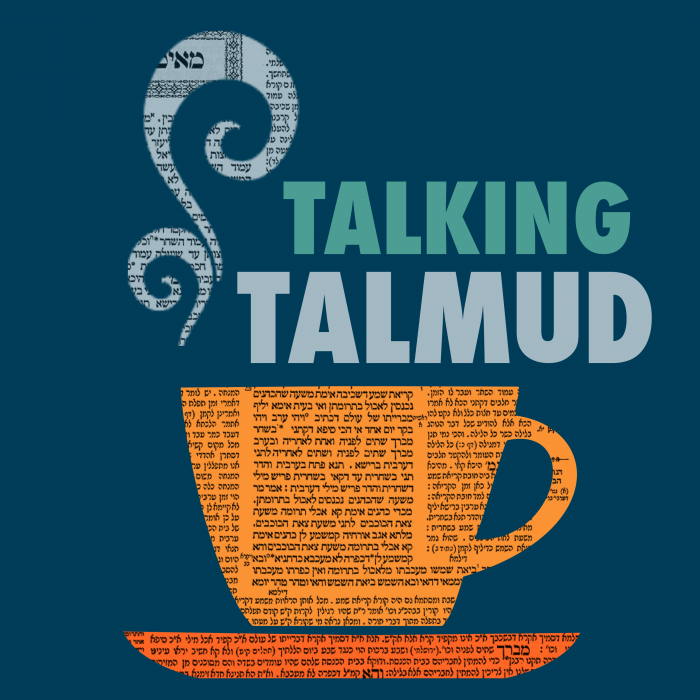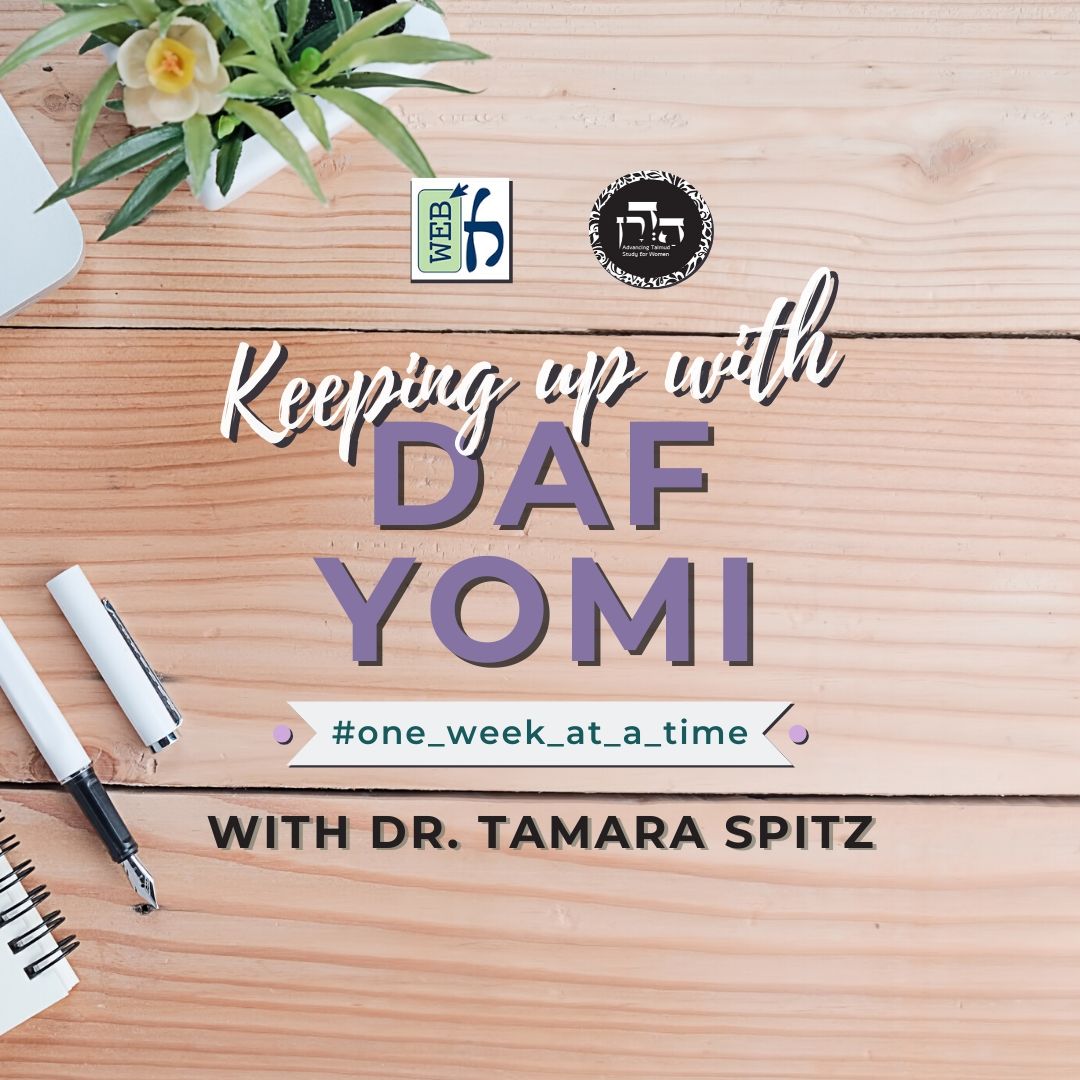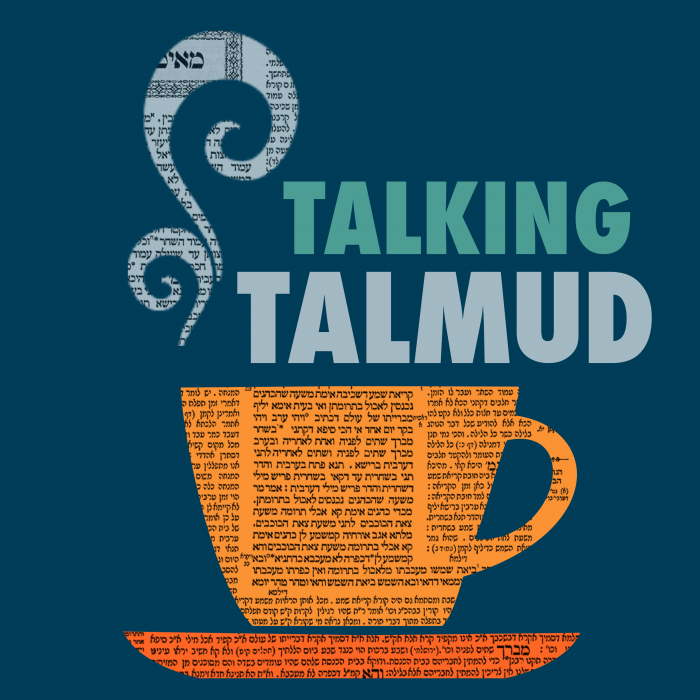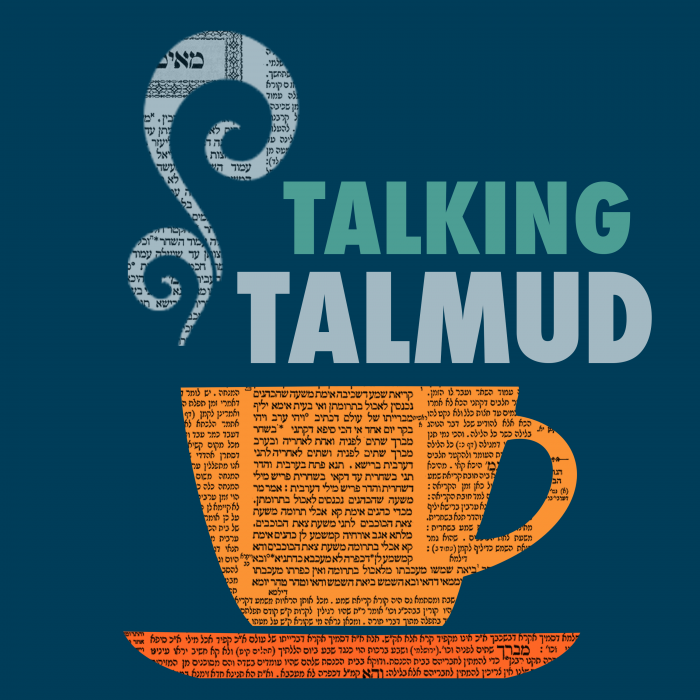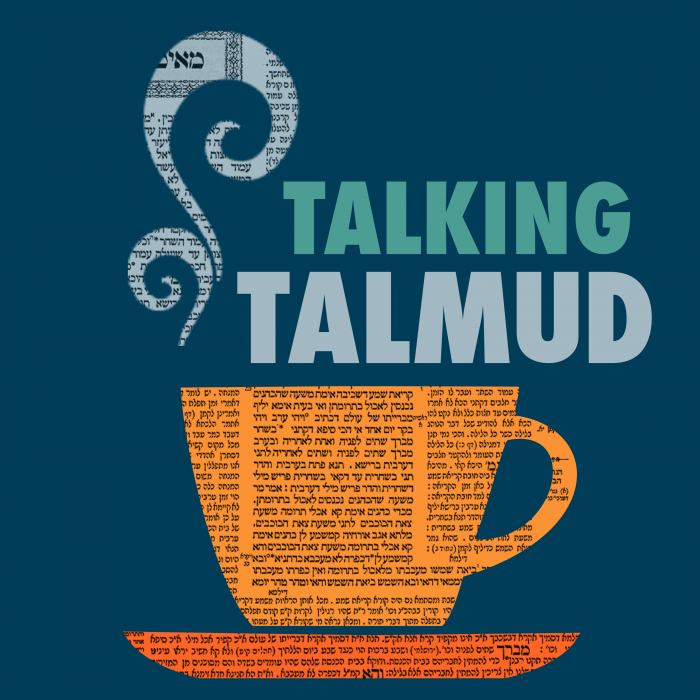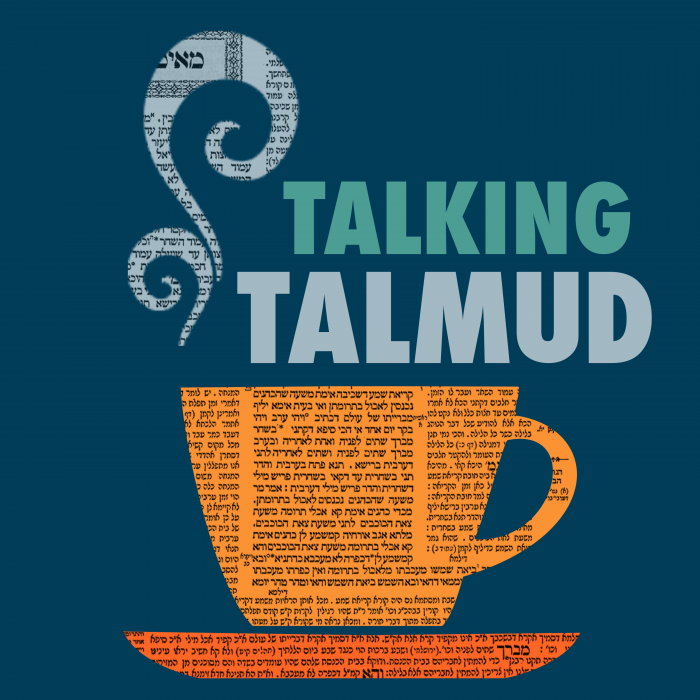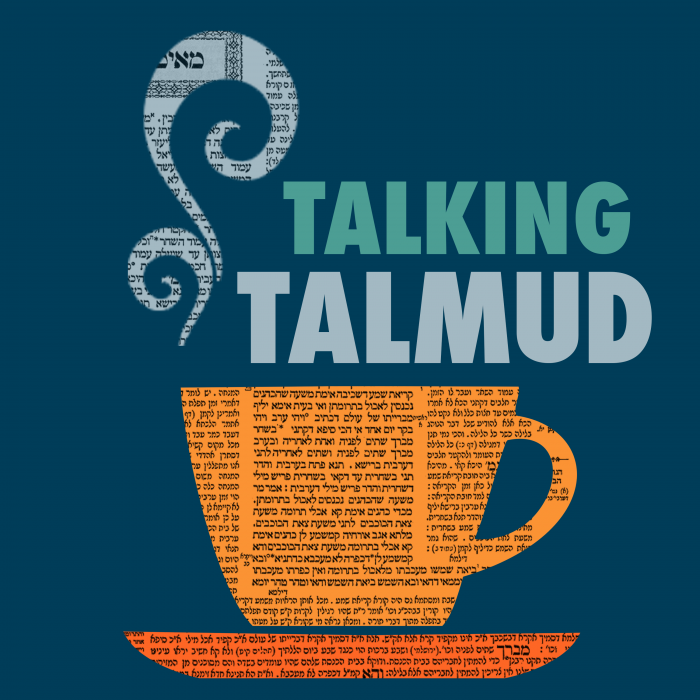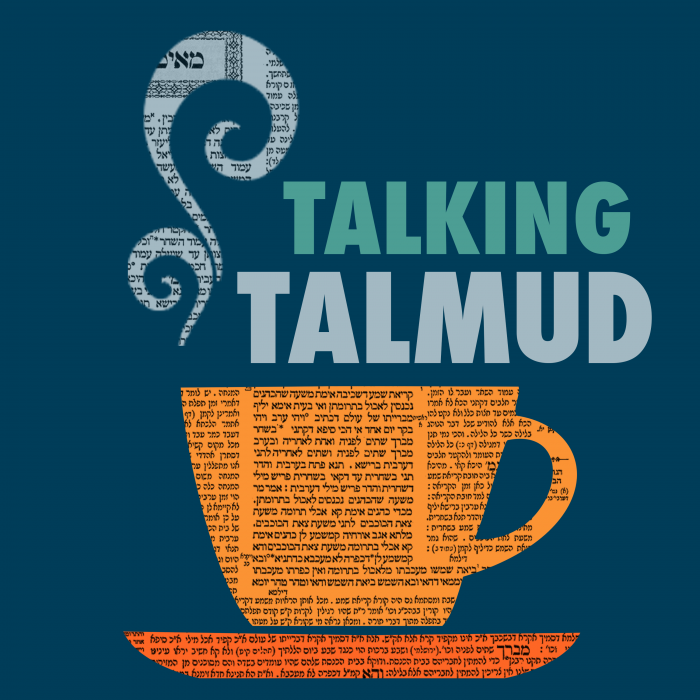Shabbat 153
וְנִשְׁמָתוֹ עוֹלָה, וְשׁוּב אֵינָהּ יוֹרֶדֶת.
and his soul ascends to its place beneath the Throne of Glory, and does not descend anymore.
אָמַר רַב יְהוּדָה בְּרֵיהּ דְּרַב שְׁמוּאֵל בַּר שִׁילַת מִשְּׁמֵיהּ דְּרַב: מֵהֶסְפֵּדוֹ שֶׁל אָדָם נִיכָּר אִם בֶּן הָעוֹלָם הַבָּא הוּא, אִם לָאו. אִינִי? וְהָאֲמַר לֵיהּ רַב לְרַב שְׁמוּאֵל בַּר שִׁילַת: אַחֵים בְּהֶסְפֵּידָא, דְּהָתָם קָאֵימְנָא! לָא קַשְׁיָא: הָא — דִּמְחַמּוּ לֵיהּ וְחָאֵים. הָא — דִּמְחַמּוּ לֵיהּ וְלָא חָאֵים.
Rav Yehuda, son of Rav Shmuel bar Sheilat, said in the name of Rav: From a person’s eulogy it is apparent whether or not he has a share in the World-to-Come. If the listeners are pained and brought to tears during the eulogy, it is clear that the person was righteous. The Gemara asks: Is that so? Didn’t Rav say to Rav Shmuel bar Sheilat: Stir the hearts of those gathered during my eulogy, for I will be standing there and listening to your words? Even a person as great as Rav needed to give instructions about his eulogy. The Gemara answers: This is not difficult, for this statement, which maintains that those who merit a share in the World-to-Come can be identified by their eulogies, is referring to a situation in which they attempt to stir the listener and he is stirred; while that statement is referring to a situation in which they attempt to stir the listener and he is not stirred. That is an indication that the deceased person was not righteous.
אֲמַר לֵיהּ אַבָּיֵי לְרַבָּה: כְּגוֹן מָר דְּסָנוּ לֵיהּ כּוּלְּהוּ פּוּמְבְּדִיתָאֵי, מַאן מַחֵים הֶסְפֵּידָא? אֲמַר לֵיהּ: מִיסָּתַאי אַתְּ וְרַבָּה בַּר רַב חָנָן.
Abaye said to Rabba: In the case of the Master, i.e., Rabba, whom all of the inhabitants of his city, Pumbedita, hate, who will be stirred during his eulogy? He said to him: It is sufficient for me if you and Rabba bar Rav Ḥanan are stirred.
בְּעָא מִנֵּיהּ רַבִּי אֶלְעָזָר מֵרַב: אֵיזֶהוּ בֶּן הָעוֹלָם הַבָּא? אֲמַר לֵיהּ: ״וְאׇזְנֶיךָ תִּשְׁמַעְנָה דָבָר מֵאַחֲרֶיךָ לֵאמֹר זֶה הַדֶּרֶךְ לְכוּ בוֹ כִּי תַאֲמִינוּ וְכִי תַשְׂמְאִילוּ״. רַבִּי חֲנִינָא אָמַר: כׇּל שֶׁדַּעַת רַבּוֹתֵינוּ נוֹחָה הֵימֶנּוּ. ״וְסָבְבוּ בַּשּׁוּק הַסּוֹפְדִים״, בְּנֵי גָלִילָא אָמְרִי: עֲשֵׂה דְּבָרִים לִפְנֵי מִטָּתֶךָ, בְּנֵי יְהוּדָה אָמְרִי: עֲשֵׂה דְּבָרִים לְאַחַר מִטָּתֶךָ. וְלָא פְּלִיגִי: מָר כִּי אַתְרֵיהּ, וּמָר כִּי אַתְרֵיהּ.
Rabbi Elazar raised a dilemma before Rav: Which type of person has a share in the World-to-Come? He said to him: We can derive this from the verse: “And your ears shall hear a word behind you, saying: This is the path, walk on it, when you turn to the right or to the left” (Isaiah 30:21). In other words, if people eulogize one by saying that others should follow in his path, he must have a share in the World-to-Come. Rabbi Ḥanina said: Anyone with whom our Rabbis are pleased has a share in the World-to-Come. In interpreting the verse: “And the eulogizers walk about the marketplace” (Ecclesiastes 12:5), the people of the Galilee say: Do things that you will want people to say at your eulogy in front of your bier. The people of Judea say: Do things that you want people to say at your eulogy behind your bier. The Gemara remarks: And they do not disagree; this Sage expressed it according to the norm in his place, and this Sage expressed it differently according to the norm in his place. The custom in the Galilee was that the eulogizers would stand before the bier and the custom in Judea was that eulogizers would stand behind the bier.
תְּנַן הָתָם, רַבִּי אֱלִיעֶזֶר אוֹמֵר: שׁוּב יוֹם אֶחָד לִפְנֵי מִיתָתֶךָ. שָׁאֲלוּ תַּלְמִידָיו אֶת רַבִּי אֱלִיעֶזֶר: וְכִי אָדָם יוֹדֵעַ אֵיזֶהוּ יוֹם יָמוּת? אָמַר לָהֶן: וְכׇל שֶׁכֵּן, יָשׁוּב הַיּוֹם, שֶׁמָּא יָמוּת לְמָחָר, וְנִמְצָא כׇּל יָמָיו בִּתְשׁוּבָה. וְאַף שְׁלֹמֹה אָמַר בְּחׇכְמָתוֹ: ״בְּכׇל עֵת יִהְיוּ בְגָדֶיךָ לְבָנִים וְשֶׁמֶן עַל רֹאשְׁךָ אַל יֶחְסָר״.
We learned there in a mishna that Rabbi Eliezer says: Repent one day before your death. Rabbi Eliezer’s students asked him: But does a person know the day on which he will die? He said to them: All the more so this is a good piece of advice, and one should repent today lest he die tomorrow; and by following this advice one will spend his entire life in a state of repentance. And King Solomon also said in his wisdom: “At all times your clothes should be white, and oil shall not be absent from upon your head” (Ecclesiastes 9:8), meaning that a person always needs to be prepared.
אָמַר רַבִּי יוֹחָנָן בֶּן זַכַּאי: מָשָׁל לְמֶלֶךְ שֶׁזִּימֵּן אֶת עֲבָדָיו לִסְעוּדָה, וְלֹא קָבַע לָהֶם זְמַן. פִּיקְחִין שֶׁבָּהֶן קִישְּׁטוּ אֶת עַצְמָן וְיָשְׁבוּ עַל פֶּתַח בֵּית הַמֶּלֶךְ, אָמְרוּ: כְּלוּם חָסֵר לְבֵית הַמֶּלֶךְ? טִיפְּשִׁין שֶׁבָּהֶן הָלְכוּ לִמְלַאכְתָּן, אָמְרוּ: כְּלוּם יֵשׁ סְעוּדָה בְּלֹא טוֹרַח?
Similarly, Rabban Yoḥanan ben Zakkai said the following story as a parable to this lesson: The situation is comparable to a king who invited his servants to a feast and did not set a time for them to come. The wise among them adorned themselves and sat at the entrance to the king’s house. They said: Is the king’s house missing anything necessary for the feast? Certainly the king could invite them at any moment. The fools among them went to attend to their work and said: Is there such thing as a feast without the toil of preparing for it? While the feast is being prepared, we will attend to other matters.
פִּתְאוֹם בִּיקֵּשׁ הַמֶּלֶךְ אֶת עֲבָדָיו. פִּיקְחִין שֶׁבָּהֶן נִכְנְסוּ לְפָנָיו כְּשֶׁהֵן מְקוּשָּׁטִין, וְהַטִּיפְּשִׁים נִכְנְסוּ לְפָנָיו כְּשֶׁהֵן מְלוּכְלָכִין. שָׂמַח הַמֶּלֶךְ לִקְרַאת פִּיקְחִים וְכָעַס לִקְרַאת טִיפְּשִׁים. אָמַר: הַלָּלוּ שֶׁקִּישְּׁטוּ אֶת עַצְמָן לַסְּעוּדָה — יֵשְׁבוּ וְיֹאכְלוּ וְיִשְׁתּוּ, הַלָּלוּ שֶׁלֹּא קִישְּׁטוּ עַצְמָן לַסְּעוּדָה — יַעַמְדוּ וְיִרְאוּ.
Suddenly, the king requested that his servants come to the feast. The wise among them entered before him adorned in their finest clothes, and the fools entered before him dirty. The king was happy to greet the wise ones and angry to greet the fools. The king said: These wise servants who adorned themselves for the feast shall sit and eat and drink, but these fools who did not adorn themselves for the feast shall stand and watch. There is a similar outcome for people who think that their day of death and judgment is far away and do not prepare themselves for it.
חֲתָנוֹ שֶׁל רַבִּי מֵאִיר מִשּׁוּם רַבִּי מֵאִיר אָמַר: אַף הֵן נִרְאִין כִּמְשַׁמְּשִׁין. אֶלָּא אֵלּוּ וָאֵלּוּ יוֹשְׁבִין: הַלָּלוּ — אוֹכְלִין, וְהַלָּלוּ — רְעֵבִין. הַלָּלוּ — שׁוֹתִין, וְהַלָּלוּ — צְמֵאִים, שֶׁנֶּאֱמַר: ״כֹּה אָמַר ה׳ הִנֵּה עֲבָדַי יֹאכֵלוּ וְאַתֶּם תִּרְעָבוּ הִנֵּה עֲבָדַי יִשְׁתּוּ וְאַתֶּם תִּצְמָאוּ הִנֵּה עֲבָדַי יָרוֹנּוּ מִטּוּב לֵב וְאַתֶּם תִּצְעֲקוּ מִכְּאֵב לֵב״.
Rabbi Meir’s son-in-law said in the name of Rabbi Meir: If the punishment for those who did not prepare themselves in advance was merely to stand and watch, it would not be severe enough because they also look like servants at the feast, which is not such a disgraceful punishment. Rather, these and these, both groups of people, sit at the feast. These wise and righteous people eat, and these wicked fools are hungry; these righteous people drink, and these wicked people are thirsty, as it is stated: “Therefore, thus said the Lord, God: Behold, My servants shall eat and you shall be hungry; behold, My servants shall drink and you shall be thirsty; behold, My servants shall rejoice and you shall be ashamed. Behold, My servants shall sing from a joyous heart and you shall scream from a pained heart” (Isaiah 65:13–14).
דָּבָר אַחֵר: ״בְּכׇל עֵת יִהְיוּ בְגָדֶיךָ לְבָנִים״ — אֵלּוּ צִיצִית, ״וְשֶׁמֶן עַל רֹאשְׁךָ אַל יֶחְסָר״ — אֵלּוּ תְּפִילִּין.
Alternatively, the verse quoted above can be interpreted in the following way: “At all times let your clothes be white”; this is clothing that contains ritual fringes [tzitzit], which are white. “And oil shall not be absent from upon your head”; these words hint to phylacteries, which are worn on the head.
הדרן עלך שואל
מַתְנִי׳ מִי שֶׁהֶחֱשִׁיךְ בַּדֶּרֶךְ — נוֹתֵן כִּיסוֹ לְגוֹי, וְאִם אֵין עִמּוֹ גּוֹי — מַנִּיחוֹ עַל הַחֲמוֹר. הִגִּיעַ לֶחָצֵר הַחִיצוֹנָה — נוֹטֵל אֶת הַכֵּלִים הַנִּיטָּלִין בַּשַּׁבָּת. וְשֶׁאֵינָן נִיטָּלִין בַּשַּׁבָּת — מַתִּיר הַחֲבָלִים, וְהַשַּׂקִּין נוֹפְלִין (מֵאֲילֵיהֶם).
MISHNA: One who was traveling on Shabbat eve and night fell, and Shabbat began while he was still en route, gives his money pouch to a gentile traveling with him. And if there is no gentile with him he places it on the donkey. Once he reached the outer courtyard of the city, where belongings can be securely placed, he takes the vessels that may be moved on Shabbat off the donkey. With regard to the vessels that may not be moved on Shabbat, he unties the ropes that attach his bags to the donkey, and the bags of vessels fall on their own.
גְּמָ׳ מַאי טַעְמָא שָׁרוּ לֵיהּ רַבָּנַן לְמִיתַּב כִּיסֵיהּ לְגוֹי? קִים לְהוּ לְרַבָּנַן דְּאֵין אָדָם מַעֲמִיד עַצְמוֹ עַל מָמוֹנוֹ, אִי לָא שָׁרֵית לֵיהּ — אָתֵי לְאֵיתוֹיֵי אַרְבַּע אַמּוֹת בִּרְשׁוּת הָרַבִּים.
GEMARA: We learned in the mishna: One who was traveling on Shabbat eve and night fell, and Shabbat began while he was still en route, gives his money pouch to a gentile. The Gemara asks: What is the reason that the Sages permitted him to give his pouch to a gentile? Is it not prohibited for a Jew to ask a gentile to perform a prohibited labor on Shabbat? The Gemara answers: The Sages maintain that a person does not restrain himself when faced with losing his money. If you do not permit him to give his pouch to a gentile, he will come to carry four cubits in a public domain, thereby violating a Torah prohibition.
אָמַר רָבָא: דַּוְקָא כִּיסוֹ, אֲבָל מְצִיאָה — לָא. פְּשִׁיטָא, ״כִּיסוֹ״ תְּנַן! מַהוּ דְתֵימָא הוּא הַדִּין אֲפִילּוּ מְצִיאָה, וְהַאי דְּקָתָנֵי ״כִּיסוֹ״ — אוֹרְחָא דְמִילְּתָא קָתָנֵי, קָא מַשְׁמַע לַן. וְלָא אֲמַרַן, אֶלָּא דְּלָא אֲתַי לִידֵיהּ, אֲבָל אֲתַי לִידֵיהּ — כְּכִיסֵיהּ דָּמֵי.
Rava said: This allowance to give the pouch to a gentile is specifically with regard to his own pouch, but in the case of a lost object that he found, no, it was not permitted. The Gemara asks: That is obvious, as we learned in the mishna: His pouch, and nothing else. The Gemara answers: Rava specified this lest you say that the same is true even with regard to a lost object, that one may give it to a gentile on Shabbat, and the mishna taught the case of his pouch merely because it is the manner in which the matter typically occurs. Therefore, Rava teaches us that the mishna is in fact establishing a halakha restricted to his pouch. The Gemara comments: And we only said that this allowance does not apply to a lost object when it did not come into his possession before Shabbat. However, if the object already came into his possession before Shabbat, its legal status is like that of his pouch.
אִיכָּא דְאָמְרִי, בָּעֵי רָבָא: מְצִיאָה הַבָּאָה לְיָדוֹ מַהוּ, כֵּיוָן דַּאֲתַי לִידֵיהּ — כְּכִיסֵיהּ דָּמֵי? אוֹ דִילְמָא כֵּיוָן דְּלָא טָרַח בַּהּ — לָאו כְּכִיסֵיהּ דָּמֵי. תֵּיקוּ.
Some state this dilemma in a different manner. Rava raised a dilemma: With regard to a lost object that came into his possession before Shabbat, what is the ruling? Is the halakha that since it already came into his possession, its legal status is like that of his pouch? Or perhaps, since he did not exert himself to acquire it, its legal status is not like that of his pouch. Since he expended no effort, he would be capable of restraining himself even when faced with losing it. Therefore, there is no need for the Sages to permit him to give it to a gentile. The Gemara concludes: Let this dilemma stand unresolved.
אֵין עִמּוֹ גּוֹי. טַעְמָא דְּאֵין עִמּוֹ גּוֹי, הָא יֵשׁ עִמּוֹ גּוֹי — לְגוֹי יָהֵיב לֵיהּ. מַאי טַעְמָא? חֲמוֹר — אַתָּה מְצֻוֶּוה עַל שְׁבִיתָתוֹ, גּוֹי — אִי אַתָּה מְצֻוֶּוה עַל שְׁבִיתָתוֹ.
We learned in the mishna: And if there is no gentile with him he places it on the donkey. The Gemara infers: The reason is specifically because there is no gentile with him; if there is a gentile with him, he gives it to the gentile and does not place it on a donkey. The Gemara asks: What is the reason for this halakha? The Gemara answers: With regard to a donkey belonging to a Jew, you are commanded with regard to its rest on Shabbat. With regard to a gentile, you are not commanded with regard to his rest and no Torah prohibition is being violated.
חֲמוֹר וְחֵרֵשׁ שׁוֹטֶה וְקָטָן — אַחֲמוֹר מַנַּח לֵיהּ, לְחֵרֵשׁ שׁוֹטֶה וְקָטָן לָא יָהֵיב לֵיהּ. מַאי טַעְמָא? הָנֵי — אָדָם, הַאי — לָאו אָדָם. חֵרֵשׁ וְשׁוֹטֶה — לְשׁוֹטֶה. שׁוֹטֶה וְקָטָן — לְשׁוֹטֶה.
The Gemara teaches an additional halakha: If there was no gentile with him but there was a donkey, a deaf-mute, an imbecile, and a minor, meaning someone under thirteen years old, one places it on the donkey, but one neither gives it to the deaf-mute, nor the imbecile, nor the minor. What is the reason for this? Although they are not obligated to fulfill mitzvot, these are people, but this donkey is not a person. It is preferable to place it on the donkey rather than give it to a person. And if a deaf-mute and an imbecile were with him, he gives it to the imbecile. If an imbecile and a minor were with him, he gives it to the imbecile.
אִיבַּעְיָא לְהוּ: חֵרֵשׁ וְקָטָן מַאי? אַלִּיבָּא דְּרַבִּי אֱלִיעֶזֶר לָא תִּיבְּעֵי לָךְ, דְּתַנְיָא: רַבִּי יִצְחָק אוֹמֵר מִשּׁוּם רַבִּי אֱלִיעֶזֶר: תְּרוּמַת חֵרֵשׁ,
A dilemma was raised before the Sages: If a deaf-mute and a minor were with him, what is the ruling? To whom does he give his pouch? The Gemara answers: According to the opinion of Rabbi Eliezer you have no dilemma. Rabbi Eliezer holds that a deaf-mute has a greater degree of halakhic intelligence than does a minor, as it was taught in a baraita: Rabbi Yitzḥak says in the name of Rabbi Eliezer: The teruma of a deaf-mute that he separated from his produce
לֹא תֵּצֵא לְחוּלִּין, מִפְּנֵי שֶׁהוּא סָפֵק.
does not vacate its sanctified status and assume non-sacred status because his status with regard to halakhic intelligence is uncertain. According to Rabbi Eliezer, a deaf-mute apparently has a degree of halakhic intelligence, and therefore has a greater obligation in mitzvot than a minor.
כִּי תִּיבְּעֵי לָךְ אַלִּיבָּא דְּרַבָּנַן, דִּתְנַן: חֲמִשָּׁה לֹא יִתְרוֹמוּ, וְאִם תָּרְמוּ אֵין תְּרוּמָתָן תְּרוּמָה, אֵלּוּ הֵן: חֵרֵשׁ שׁוֹטֶה וְקָטָן, וְהַתּוֹרֵם אֶת שֶׁאֵינוֹ שֶׁלּוֹ, וְגוֹי שֶׁתָּרַם אֶת שֶׁל יִשְׂרָאֵל אֲפִילּוּ בִּרְשׁוּתוֹ אֵין תְּרוּמָתוֹ תְּרוּמָה.
When you raise this dilemma, the issue is in accordance with the opinion of the Rabbis, as we learned in a mishna: There are five categories of people who may not separate teruma ab initio, and if they separated teruma, their teruma is not considered teruma. They are: A deaf-mute, an imbecile, and a minor, and one who separates teruma from produce that is not his; and a gentile who separated teruma from the produce of a Jew, even with his permission, his teruma is not considered teruma because a gentile cannot be appointed as an agent to separate teruma, and all the more so he cannot separate teruma on his own. The deaf-mute and the minor have the same legal status according to the Rabbis; therefore, a dilemma arises as to which of them should receive the pouch on Shabbat.
מַאי? לְחֵרֵשׁ יָהֵיב לֵיהּ, דְּקָטָן אָתֵי לִכְלַל דַּעַת, אוֹ דִילְמָא לְקָטָן יָהֵיב לֵיהּ, דְּחֵרֵשׁ אָתֵי לְאִחַלּוֹפֵי בְּגָדוֹל פִּיקֵּחַ. אִיכָּא דְאָמְרִי לְחֵרֵשׁ יָהֵיב לֵיהּ, אִיכָּא דְאָמְרִי לְקָטָן יָהֵיב לֵיהּ.
What should one do? Should he give it to the deaf-mute because the minor will eventually reach the stage of halakhic intelligence, when he will be obligated to observe the mitzvot, and it is preferable that he not become accustomed to desecrating Shabbat? Or perhaps he should give it to the minor, because if he is allowed to give it to the deaf-mute, onlookers will mistake him for an adult with halakhic intelligence and conclude that it is permitted to give his pouch to an adult? In that case it would be preferable to give the pouch to a minor, as it is clear that he is not obligated in mitzvot. Regarding this halakha, some say that he gives it to the deaf-mute and some say that he gives it to the minor, and no definitive conclusion was reached.
אֵין שָׁם לֹא גּוֹי וְלֹא חֲמוֹר וְלֹא חֵרֵשׁ וְלֹא שׁוֹטֶה וְלֹא קָטָן, מַאי? אָמַר רַבִּי יִצְחָק: עוֹד אַחֶרֶת הָיְתָה, וְלֹא רָצוּ חֲכָמִים לְגַלּוֹתָהּ. מַאי ״עוֹד אַחֶרֶת הָיְתָה״? מוֹלִיכוֹ פָּחוֹת פָּחוֹת מֵאַרְבַּע אַמּוֹת. אַמַּאי לֹא רָצוּ חֲכָמִים לְגַלּוֹתָהּ? — מִשּׁוּם ״כְּבוֹד אֱלֹהִים הַסְתֵּר דָּבָר וּכְבוֹד מְלָכִים חֲקוֹר דָּבָר״. וְהָכָא, מַאי ״כְּבוֹד אֱלֹהִים״ אִיכָּא? דִּילְמָא אָתֵי לְאֵתוֹיֵי אַרְבַּע אַמּוֹת בִּרְשׁוּת הָרַבִּים.
The Gemara asks: If there is neither a gentile nor a donkey nor a deaf-mute nor an imbecile nor a minor there, what should one do? Rabbi Yitzḥak said: There was another manner of dealing with this situation, and the Sages did not want to reveal it. The Gemara asks: To what was Rabbi Yitzḥak referring when he said: There was another manner? The Gemara answers: The alternative is to move the pouch in increments, each less than four cubits, and thereby carry the object in the public domain without violating a Torah prohibition. The Gemara asks: Why didn’t the Sages want to reveal this alternative? The Gemara answers that it is due to the verse: “It is the glory of God to conceal a thing; but the glory of kings is to search out a matter” (Proverbs 25:2). And here, what glory of God is there in concealing this option? The Gemara answers: If one were to move the pouch in this manner, there is concern lest he come to carry the object four cubits in the public domain.
תַּנְיָא, רַבִּי אֱלִיעֶזֶר אוֹמֵר: בּוֹ בַּיּוֹם גָּדְשׁוּ סְאָה. רַבִּי יְהוֹשֻׁעַ אוֹמֵר: בּוֹ בַּיּוֹם מָחֲקוּ סְאָה.
The ruling that one should give his pouch to a gentile rather than carry in increments each less than four cubits was among the eighteen decrees issued in accordance with the position of Beit Shammai, enumerated in the first chapter of tractate Shabbat. Sages of later generations disagreed with regard to these eighteen decrees: It was taught in a baraita that Rabbi Eliezer says: On that day they measured with a large se’a measurement, i.e., they did well to issue these decrees, which construct a fence around the Torah to prevent its violation. Rabbi Yehoshua said: On that very day they measured with a minimal se’a, i.e., because these decrees are difficult to observe, they not only will lead people to violate the decrees, but to violate Torah prohibitions as well.
תַּנְיָא: מָשָׁל דְּרַבִּי אֱלִיעֶזֶר, לְמָה הַדָּבָר דּוֹמֶה — לַקּוּפָּה מְלֵאָה קִישּׁוּאִין וְדִילּוּעִין, אָדָם נוֹתֵן לְתוֹכָהּ חַרְדָּל — וְהִיא מַחְזֶקֶת. מָשָׁל דְּרַבִּי יְהוֹשֻׁעַ, לְמָה הַדָּבָר דּוֹמֶה — לַעֲרֵיבָה מְלֵאָה דְּבַשׁ, נוֹתֵן לְתוֹכָהּ רִימּוֹנִים וֶאֱגוֹזִים — וְהִיא מְקִיאָה.
It was taught in another baraita: The Sages articulated a parable to illustrate the opinion of Rabbi Eliezer. To what is this matter similar? It is similar to a basket full of squash and gourds into which a person places mustard seeds. Just as the basket also holds the mustard, the decree will also endure. They also articulated a parable to illustrate the opinion of Rabbi Yehoshua: To what is this matter similar? It is similar to a large bowl full of honey into which one places pomegranates and walnuts. Just as the bowl expels the honey from inside it, so too, the decree will cause Torah prohibitions to be violated.
אָמַר מָר אֵין עִמּוֹ גּוֹי מַנִּיחוֹ עַל הַחֲמוֹר. וַהֲלֹא מְחַמֵּר, וְרַחֲמָנָא אָמַר ״לֹא תַעֲשֶׂה כׇל מְלָאכָה״!
We learned in the mishna that the Master said: When there is no gentile with him, one places the pouch on the donkey. The Gemara asks: Isn’t he thereby driving a laden animal? And the Torah stated: “And the seventh day is Shabbat for the Lord your God, you shall not perform any manner of labor, neither you, nor your son, nor your daughter, nor your slave, nor your maidservant, nor your animal, nor your stranger that is within your gates” (Exodus 20:10). He is causing the prohibited labors of carrying from domain to domain and of carrying in the public domain by placing the pouch on his donkey on Shabbat.
אָמַר רַב אַדָּא בַּר אַהֲבָה: מַנִּיחוֹ עָלֶיהָ כְּשֶׁהִיא מְהַלֶּכֶת. וְהָא אִי אֶפְשָׁר דְּלָא קָיְימָא לְהַשְׁתִּין מַיִם וּלְהַטִּיל גְּלָלִים, וְאִיכָּא עֲקִירָה וְהַנָּחָה! כְּשֶׁהִיא מְהַלֶּכֶת — מַנִּיחוֹ עָלֶיהָ, כְּשֶׁהִיא עוֹמֶדֶת — נוֹטְלוֹ הֵימֶנָּה. אִי הָכִי, אֲפִילּוּ חֲבֵרוֹ נָמֵי!
Rav Adda bar Ahava said: One places the pouch on the donkey as it is walking, because in doing so he does not commit a full-fledged violation of the Torah prohibition against carrying out from domain to domain on Shabbat. A full-fledged violation consists of lifting and placing the object. Because the animal was already walking when the pouch was placed on it, the animal performed no lifting. The Gemara asks: Isn’t it impossible that the animal will not stand in its place at some point after it begins walking, either in order to urinate or to defecate, and when it begins walking again there is both an act of lifting and an act of placing performed by the donkey. The Gemara answers: There is a solution to that problem. When the donkey is walking, one places the pouch on it, and when it stands, he removes it. The Gemara asks: If so, one could even place the pouch on another Jew as well, as there would be neither lifting nor placing.
אָמַר רַב פָּפָּא: כׇּל שֶׁבְּגוּפוֹ חַיָּיב חַטָּאת — בַּחֲבֵרוֹ פָּטוּר אֲבָל אָסוּר, כׇּל שֶׁחֲבֵרוֹ פָּטוּר אֲבָל אָסוּר — בַּחֲמוֹרוֹ מוּתָּר לְכַתְּחִלָּה.
Rav Pappa said: Any action that if one performs it by himself, he is liable to bring a sin-offering for it, if he performed it by means of another, he is exempt but it is still prohibited for him to do so. And any action that if performed by means of another, he is exempt from bringing a sin-offering but it is still prohibited for him to do so, performing the action by means of his donkey is permitted ab initio.
אָמַר רַב אַדָּא בַּר אַהֲבָה: הָיְתָה חֲבִילָתוֹ מוּנַּחַת לוֹ עַל כְּתֵיפוֹ — רָץ תַּחְתֶּיהָ עַד שֶׁמַּגִּיעַ לְבֵיתוֹ. דַּוְקָא רָץ, אֲבָל קַלִּי קַלִּי — לָא.
Rav Adda bar Ahava said: One who was traveling on Shabbat eve and his package was resting on his shoulder as night fell, he runs beneath it, i.e., with his package on his shoulder, until he reaches his home. The Gemara infers: Specifically, one runs until he reaches home; however, walking a little bit at a time, no, he may not do so.
מַאי טַעְמָא? — כֵּיוָן דְּלֵית לֵיהּ הֶיכֵּירָא, אָתֵי לְמִיעְבַּד עֲקִירָה וְהַנָּחָה. סוֹף סוֹף, כִּי מָטֵי לְבֵיתֵיהּ אִי אֶפְשָׁר דְּלָא קָאֵי פּוּרְתָּא, וְקָמְעַיֵּיל מֵרְשׁוּת הָרַבִּים לִרְשׁוּת הַיָּחִיד! דְּזָרֵיק לֵיהּ כִּלְאַחַר יָד.
The Gemara asks: What is the reason for this? Since, when walking in the usual manner, he has no conspicuous reminder that it is Shabbat, there is concern lest he come to perform the acts of lifting and placing by stopping to rest on his way home. The Gemara asks: Ultimately, when he reaches his home, it is impossible that he will not stop and stand a bit, and at that point, he will have performed the prohibited labor of carrying the package from the public domain into the private domain of his house. The Gemara answers: This is referring to a case in which he does not place the package in the typical manner when he reaches his home. Rather, he throws it down in an unusual manner. Since he did not perform the action in the typical manner, it is not prohibited by Torah law.
אָמַר רָמֵי בַּר חָמָא: הַמְחַמֵּר אַחֵר בְּהֶמְתּוֹ בְּשַׁבָּת, בְּשׁוֹגֵג — חַיָּיב חַטָּאת, בְּמֵזִיד — חַיָּיב סְקִילָה. מַאי טַעְמָא? אָמַר רָבָא: דְּאָמַר קְרָא: ״לֹא תַעֲשֶׂה כׇל מְלָאכָה אַתָּה וּבְהֶמְתֶּךָ״ — בְּהֶמְתּוֹ דּוּמְיָא דִידֵיהּ: מָה הוּא — בְּשׁוֹגֵג חַיָּיב חַטָּאת, בְּמֵזִיד חַיָּיב סְקִילָה. אַף בְּהֶמְתּוֹ נָמֵי — בְּשׁוֹגֵג חַיָּיב חַטָּאת, בְּמֵזִיד חַיָּיב סְקִילָה.
With regard to the topic of driving a donkey on Shabbat, the Gemara cites that which Rami bar Ḥama said: With regard to one who drives his laden animal on Shabbat, if he does so unwittingly, he is liable to bring a sin-offering, and if he does so intentionally, he is liable to be executed by stoning. The Gemara asks: What is the reason for this ruling? Rava said that the verse states: “You shall not perform any manner of labor, neither you…nor your animal” (Exodus 20:10). From this he derived: His animal is similar to himself; just as he, if he performed a prohibited labor on Shabbat unwittingly, he is liable to bring a sin-offering, and if he did so intentionally, he is liable to be executed by stoning, so too, if he performed a prohibited labor by means of his animal, if he did so unwittingly, he is liable to bring a sin-offering, and if he did so intentionally, he is liable to be executed by stoning.
אָמַר רָבָא, שְׁתֵּי תְּשׁוּבוֹת בְּדָבָר: חֲדָא, דִּכְתִיב: ״תּוֹרָה אַחַת יִהְיֶה לָכֶם לָעוֹשֶׂה בִּשְׁגָגָה וְהַנֶּפֶשׁ אֲשֶׁר תַּעֲשֶׂה בְּיָד רָמָה״ — הוּקְּשָׁה כָּל הַתּוֹרָה כּוּלָּהּ לַעֲבוֹדָה זָרָה: מָה עֲבוֹדָה זָרָה דְּעָבֵיד מַעֲשֶׂה בְּגוּפֵיהּ, הָכָא נָמֵי עַד דְּעָבֵיד מַעֲשֶׂה בְּגוּפֵיהּ.
Rava said: There are two possible responses with which this statement can be rejected. One is, as it is written: “You shall have one law [Torah] for him that does unwittingly…and for the proselyte who resides among them. But the soul that does with a high hand, whether he be home-born or a stranger, he blasphemes the Lord; and that soul shall be cut off from among his people” (Numbers 15:29–30). This verse is referring to one who worships idolatry unwittingly. The entire Torah is juxtaposed to idolatry, and from that juxtaposition it is derived: Just as in the case of idolatry one is liable only when he performs an action with his body, i.e., himself, here too, in the case of Shabbat, he is liable only if he performs an action with his body, i.e., himself. He is not liable for an action performed by his animal.
וְעוֹד, תְּנַן: הַמְחַלֵּל אֶת הַשַּׁבָּת בְּדָבָר שֶׁחַיָּיבִין עַל שִׁגְגָתוֹ חַטָּאת וְעַל זְדוֹנוֹ סְקִילָה. מִכְּלָל דְּאִיכָּא מִידֵּי דְּאֵין חַיָּיבִין עַל שִׁגְגָתוֹ חַטָּאת וְלֹא עַל זְדוֹנוֹ סְקִילָה,
And furthermore, with regard to the statement that if he drove the laden donkey he is liable to be executed by stoning, we learned in a mishna that enumerates those who are executed by stoning: One who desecrates Shabbat by performing a matter that for its unwitting performance one is liable to bring a sin-offering, and for its intentional performance one is liable to be executed by stoning. By inference, there is another matter, another prohibition, that for which its unwitting performance one is not liable to bring a sin-offering, and for which its intentional performance one is not liable to be executed by stoning.
וּמַאי נִיהוּ, ״לָאו״ דִּמְחַמֵּר? לָא, תְּחוּמִין וְאַלִּיבָּא דְּרַבִּי עֲקִיבָא, וְהַבְעָרָה אַלִּיבָּא דְּרַבִּי יוֹסֵי.
And what is that Torah prohibition? Is it not the prohibition of driving a laden animal? Apparently, driving a laden animal and other labors performed by means of animals on Shabbat are not punishable by stoning, even though they are prohibited by Torah law. The Gemara rejects this second proof. No, this is not necessarily so. It is possible that the mishna is referring to the prohibition of Shabbat limits, and it is in accordance with the opinion of Rabbi Akiva, who holds that it is a Torah prohibition but that one is neither liable to bring a sin-offering for violating it unwittingly, nor is he liable to be executed by stoning for violating it intentionally. And likewise, it may refer to the prohibition of kindling a fire on Shabbat in accordance with the opinion of Rabbi Yosei, who holds that it is not punishable by stoning but by lashes, like other prohibitions.




